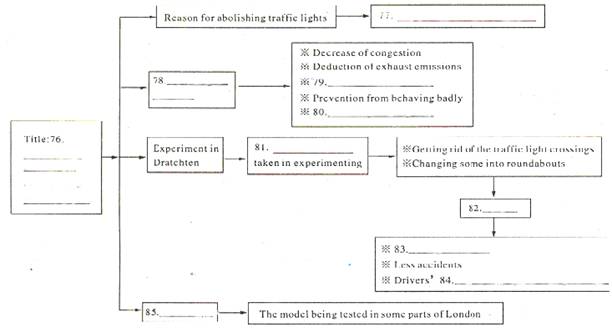题目内容
There are two factors which determine an individual's intelligence. The first is the sort of brain he is born with. Human brains differ considerably, some being more capable than others. But no matter how good a brain he has to begin with, an individual will have a low order of intelligence unless he has opportunities to learn. So the second factor is what happens to the individual—the sort of environment in which he is reared (培养). If an individual is handicapped (妨碍) environmentally, it is likely that his brain will fail to develop and he will never attain the level of intelligence of which he is capable.
The importance of environment in determining an individual's intelligence can be demonstrated by the case history of the identical twins, Peter and Mark X. Being identical, the twins had identical brains at birth, and their growth processes were the same. When the twins were three months old, their parents died, and they were placed in separate foster homes. Peter was reared by parents of low intelligence in an isolated community with poor educational opportunities. Mark was reared in the home of well-to-do parents who had been to college. He was read to as a child, sent to good schools, and given every opportunity to be stimulated intellectually. This environmental difference continued until the twins were in their late teens, when they were given tests to measure their intelligence. Mark's I.Q. was 125, twenty-five points higher than the average and fully forty points higher than his identical brother. Given equal opportunities, the twins, having identical brains, would have tested at roughly the same level.
【小题1】This passage can be best titled_________.
| A.Intelligence and Environment |
| B.Measuring Your Intelligence |
| C.The Case of Peter and Mark |
| D.How the brain Influences Intelligence |
| A.85 | B.125 | C.110 | D.100 |
| A.individual with identical brains seldom test at same level |
| B.an individual's intelligence is determined only by his environment |
| C.changes of environment produce changes in the structure of the brain |
| D.lack of opportunity blocks the growth of intelligence |
| A.can be increased by education |
| B.stays the same throughout his life |
| C.can be predicted at birth |
| D.is determined by his childhood |
【小题1】A
【小题2】D
【小题3】D
【小题4】A
解析试题分析:这篇文章讲的是智力和环境的关系。同样智力水平的人,环境和教育不一样,智商也会有很大不同。
【小题1】主旨题:从每段的段首,可以看出这篇文章讲的是智力和环境的关系。选A
【小题2】细节题:从最后一段的句子:Mark's I.Q. was 125, twenty-five points higher than the average 可知平均智商是100.选D
【小题3】推理题;从文章的最后一段的句子:Given equal opportunities, the twins, having identical brains, would have tested at roughly the same level.可知是因为缺乏机会阻碍智力发展。选D。
【小题4】细节题:从第二段的句子:Mark was reared in the home of well-to-do parents who had been to college. He was read to as a child, sent to good schools, and given every opportunity to be stimulated intellectually.可知人的智商是可以通过教育提高的。选A
考点:考查教育类短文
点评:这篇文章讲的是智力和环境的关系。同样智力水平的人,环境和教育不一样,智商也会有很大不同。做阅读理解题首先要明确文章的中心意思,只有明确了中心意思,那么做阅读理解的试题才能做到游刃有余。阅读理解的主旨大意题其实主要考查考生把握全文内容或理解文章中心思想的能力以及分析归纳文章段落大意、重要情节、人物特征和写作特点等方面的能力。文章的主旨大意明确了,若还具备分析长难句的能力,难的试题也会迎刃而解。

 课堂全解字词句段篇章系列答案
课堂全解字词句段篇章系列答案 步步高口算题卡系列答案
步步高口算题卡系列答案 点睛新教材全能解读系列答案
点睛新教材全能解读系列答案